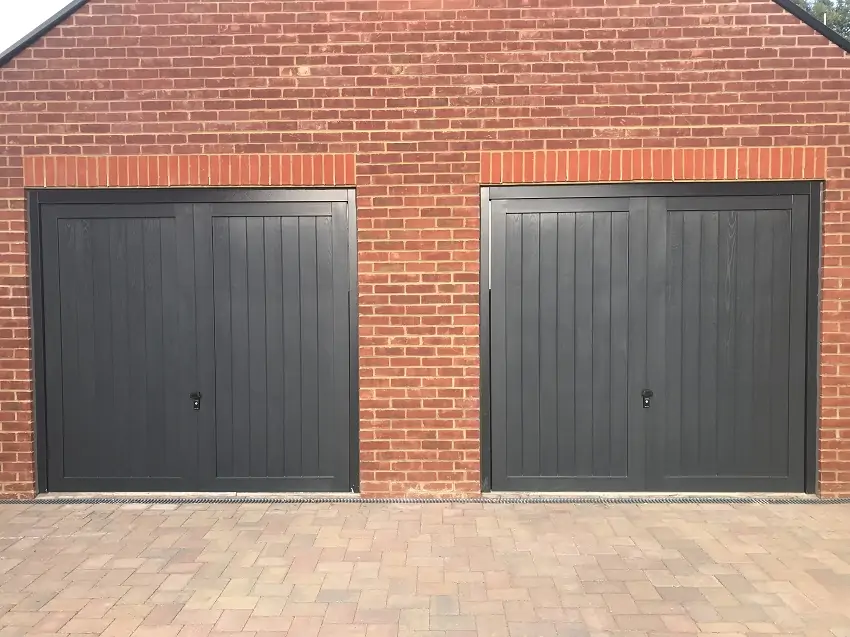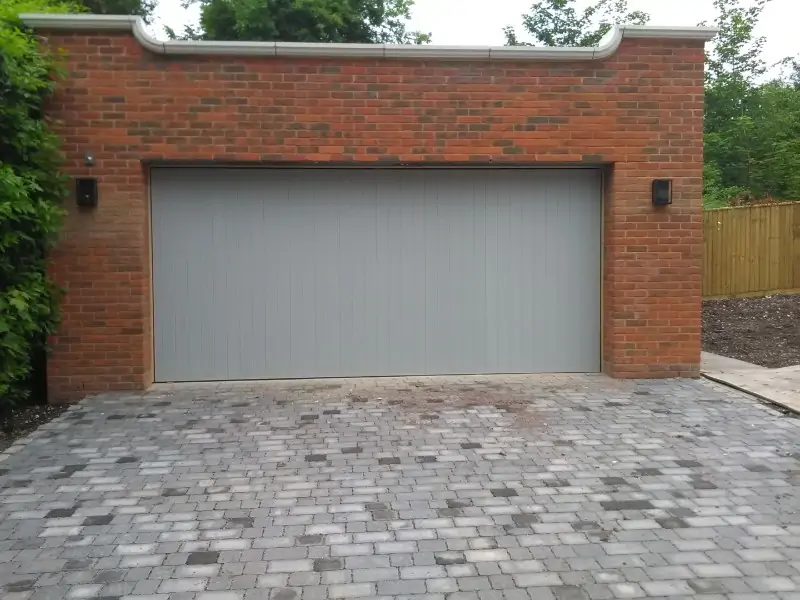Sustainable Garage Door Materials For A Greener Home
Share
Copy Link
Sustainability is a priority for many of us, especially when it comes to our homes, and that includes the exteriors. Garages are a useful addition for any homeowner, but they can often have a negative environmental impact if you’re not careful with the materials you choose.
We asked specialists Wessex Garage Doors for their advice on how to ensure sustainability is at the forefront of your decisions when choosing a new garage door or carrying out a renovation.
What’s the Carbon Footprint of a Garage Door?
The carbon footprint of garage door materials is a significant factor for eco-conscious homeowners. The footprint of the door encompasses all the greenhouse gas emissions linked to a product, from raw material extraction to its end-of-life phase.
The production process often leaves the most substantial carbon footprint. For example, producing aluminium and steel doors involves mining, refining and processing raw materials, which are incredibly energy-intensive operations. On the other hand, producing wooden doors may have a lower immediate energy cost, but it's crucial to consider the timber's source. Sustainable forestry practices and certifications ensure different types of wood are harvested in an eco-friendly manner.
Transportation also contributes to the carbon footprint through emissions generated while moving materials from their source to the manufacturing plant and then to the consumer. Materials sourced locally or those requiring less energy for transportation (due to lighter weight or more efficient shipping methods) can significantly reduce the overall ecological impact of the door you choose.
Similarly, the installation process plays a minor role in the material's carbon footprint. Energy-efficient installation practices and materials can help to minimise the environmental impact. For instance, selecting insulation materials with a low ecological footprint can enhance the garage door's energy efficiency without significantly adding to the carbon footprint.
To keep the door in good condition for longer, maintenance is key. Opting for materials that require less frequent replacement or repairs contribute to lower carbon emissions over their lifespan. A Glass Reinforced Plastic (GRP) door, for example, requires less upkeep compared to a wooden door. Therefore, if maintenance isn’t something you have the time or money for, a door that will last for years with little more than a clean and the occasional servicing will make your garage far more sustainable.
Lastly, the disposal of garage door materials at the end of their useful life significantly affects their environmental impact. Recyclable or biodegradable materials, such as certain metals and woods, can reduce the carbon footprint by minimising waste and the need for new raw materials. Conversely, materials that end up in landfills contribute to greenhouse gas emissions through decomposition or by occupying land space that could be used for carbon sequestration by vegetation. Resources are finite and thinking about how materials can be reused at the end of their life plays an important role in how eco-friendly it is overall.

Images by Wessex Garage Doors
Sustainable Materials to Choose
Wood
Wooden doors, especially reclaimed or recycled wood, are characterful and perfect for older properties. While wood is a renewable resource, it’s still important to reduce the demand for new timber so opting for repurposed will help ensure the sustainability credentials of your garage are intact. Another option is to opt for Forest Stewardship Council (FSC) certified wood which is taken from responsibly managed forests.
Fibreglass
Composite materials like fibreglass are energy-efficient and long-lasting, which makes them a great investment. What’s more, there are many on the market which make use of recycled materials to further enhance the eco-friendly properties. GRP garage doors are incredibly durable and retain warmth inside which makes them a great fit for a greener home.
Recycled Steel
Steel is a durable material that can be recycled endlessly without losing its strength, so it’s great for reducing the demand for raw materials. However, the production of steel can be quite energy intensive, so it pays to look for doors made from recycled materials to ensure it’s as sustainable as possible.
Low VOCs
Whichever material you choose, the finish is another way to enhance the environmental properties of the door. Low Volatile Organic Compound (VOC) paint finishes minimise air pollution and contribute to a healthier indoor environment.

Images by Wessex Garage Doors
The Impact of your Garage on the Value of the Property
An eco-friendly garage door doesn’t just help the planet, but it offers several benefits to boost the value of your property. The presence of eco-friendly features in a home are increasingly important for buyers, and choosing an environmentally friendly garage door can help to have a positive impact on the value and appeal of the property.
Eco-friendly garage doors offer better insulation and a host of energy-saving features, such as the integration of smart technology, that helps to keep warmth in in the cooler months and helps to reduce energy bills. Homes which have energy-efficient properties can often demand a higher asking price which boosts the value for the seller.
With environmental regulations becoming stricture and green living becoming more mainstream, future-proofing your home is a worthwhile investment of any homeowner’s time and money. Sustainable upgrades can make it more appealing to buyers and are a selling point if you want to attract a cash buyer for a faster sale. Making your home more sustainable will also appeal to potential buyers wanting to make similar changes to improve their property’s environmental standards down the line.
When shopping for a garage door, looking at eco-friendly options is critical – more so now than ever. If sustainability is a priority for you, consider not just the material itself but its longevity and the lifecycle of the product. For example, can it be recycled afterwards and how complex of a process is it to repurpose?
It’s also important to note how suitable the material is for your climate as this can impact durability. Looking at certifications such as Energy Star or FSC can also help you find more sustainable choices. While it may require more research than an off-the-shelf garage door, the benefits make it a worthwhile endeavour.



